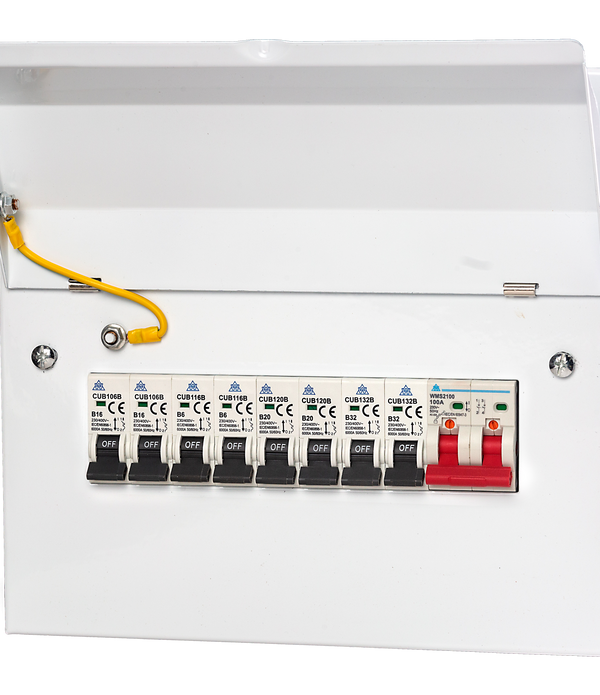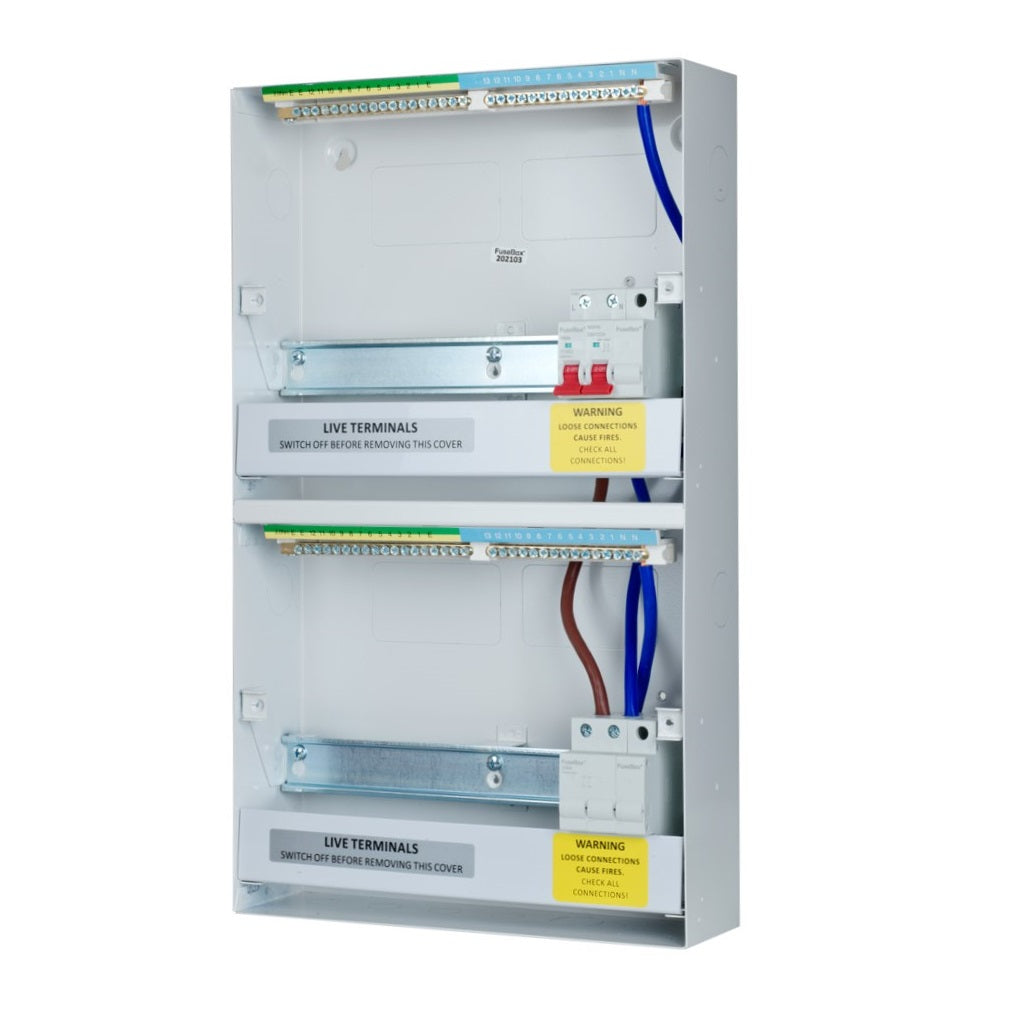The Value of Setting Up Reliable RCBO CONSUMER UNITS in Your Property
The Value of Setting Up Reliable RCBO CONSUMER UNITS in Your Property
Blog Article
The Role of Customer Devices in Reliable Energy Management Solution
Customer systems are indispensable to efficient energy management systems, serving as the key circulation factors for electric power within structures. The arrival of smart technologies has actually better enhanced their functionality, allowing for real-time information monitoring and nuanced energy consumption evaluation.
Understanding Customer Units

Comprehending the role of consumer units begins with recognizing their essential function in safeguarding electrical systems. By separating mistakes within details circuits, customer devices stop prevalent interruptions and prospective fire risks. This seclusion is attained through using circuit breakers that trip or integrates that impact when a fault is found, consequently removing the electric circulation to the impacted circuit.
Furthermore, consumer devices promote the well organized distribution of power, enhancing the performance of power usage. They permit the organized monitoring of electric loads, which can be specifically essential in commercial and commercial setups where demand can rise and fall dramatically. Properly conserved consumer devices add to the long life of electrical systems and aid in decreasing downtime triggered by electric failures, ultimately sustaining the seamless procedure of energy-dependent facilities.
Smart Technologies Combination

A crucial advantage of clever consumer devices is their capacity to take advantage of advanced algorithms and equipment learning for anticipating analytics. This permits preemptive modifications based upon use patterns, weather prediction, and other variables, significantly increasing total efficiency. Clever consumer systems assist in need action programs, where energy usage can be dynamically changed throughout height periods to maintain the grid and minimize costs.
The assimilation of renewable resource sources, such as solar and wind, is also structured via clever customer units. By wisely taking care of the intermittency of these resources, these devices make sure a dependable and balanced energy supply. In addition, clever consumer devices boost individual involvement by giving thorough understandings and remote abilities through mobile applications, promoting a much more positive technique to power conservation and sustainability.
Tracking Power Intake
Structure on the capacities of clever innovations combination, monitoring power intake becomes an important emphasis within energy management systems. Effective monitoring works as the structure for recognizing power inadequacies and applying rehabilitative actions. By leveraging innovative metering facilities (AMI), real-time data on power use can be accumulated at granular levels, providing valuable understandings right into consumption patterns and peak need periods. This data-centric approach allows both consumers and power managers to make informed choices aimed at decreasing waste and boosting total effectiveness.
Smart meters and Net of Things (IoT) devices play a pivotal role in this surveillance process. These tools can track energy use in real-time, sending data to central systems for evaluation. The accumulated data is then refined through advanced algorithms to spot abnormalities, anticipate future intake, and suggest optimization approaches. Additionally, cloud-based solutions use scalable platforms for keeping and analyzing huge datasets, helping with remote surveillance and control.
The assimilation of these technologies not only equips customers with thorough details concerning their energy usage however additionally sustains energy providers in handling tons circulation more effectively. Ultimately, constant and exact surveillance is important for attaining power efficiency, cost savings, and sustainability objectives within power monitoring systems.
Optimizing Device Use

One reliable method entails recognizing peak and off-peak hours to change energy-intensive activities, such as laundry or dishwashing, to times when energy need is special info reduced. This not just reduces strain on the grid but also takes advantage of reduced power tolls. Furthermore, incorporating artificial intelligence algorithms enables predictive upkeep, ensuring appliances operate at ideal effectiveness and prolonging their lifespan.
Energy management systems can additionally incorporate user-specific choices and actions to tailor device usage routines. For example, clever illumination systems can change brightness based upon occupancy and all-natural light availability, while a/c systems can preserve comfort levels without too much power usage.
Promoting Sustainability
Promoting sustainability within power administration systems entails not just improving effectiveness yet likewise fostering eco liable practices. Customer devices are important to this process, as they give real-time data and control systems that enable customers to check and lower their power usage. By leveraging advanced modern technologies, customer units can determine energy-saving possibilities and help with the assimilation of renewable energy sources like solar and wind power.
One important facet of promoting sustainability is educating consumers on the advantages of accountable power usage. With detailed understandings provided by consumer units, users can make enlightened choices that decrease their carbon impact. These systems can recommend optimum times for operating high-energy home appliances based on grid demand and eco-friendly power schedule, consequently lowering reliance on fossil fuels.
Moreover, customer units sustain the fostering of wise grid innovations, which improve check my site the total effectiveness and dependability of more information energy circulation. By making it possible for two-way communication between consumers and utility service providers, these systems can dynamically adapt to energy needs, lowering waste and advertising the usage of lasting power methods.
Final Thought
Consumer units, as indispensable components of power administration systems, considerably enhance electrical safety and security and effectiveness within buildings with circuit security and smart modern technology combination. Real-time information surveillance and evaluation helped with by these units enhance power usage and appliance use. Additionally, the incorporation of renewable resource sources advertises sustainable techniques, contributing to lowered general energy intake and reduced carbon footprints. Customer units play a critical role in advancing both power efficiency and ecological sustainability.
Advances in smart modern technologies have reinvented the capacities of energy management systems, particularly through the combination of smart customer units.Structure on the capabilities of wise technologies assimilation, keeping an eye on energy consumption ends up being an essential focus within power management systems.Reliable appliance usage optimization is a critical component of power monitoring systems, intending to boost efficiency and reduce unnecessary energy consumption.Customer systems, as important elements of energy monitoring systems, significantly enhance electric security and performance within structures with circuit security and smart modern technology integration. Additionally, the incorporation of renewable energy resources advertises sustainable practices, adding to decreased general energy consumption and reduced carbon impacts.
Report this page